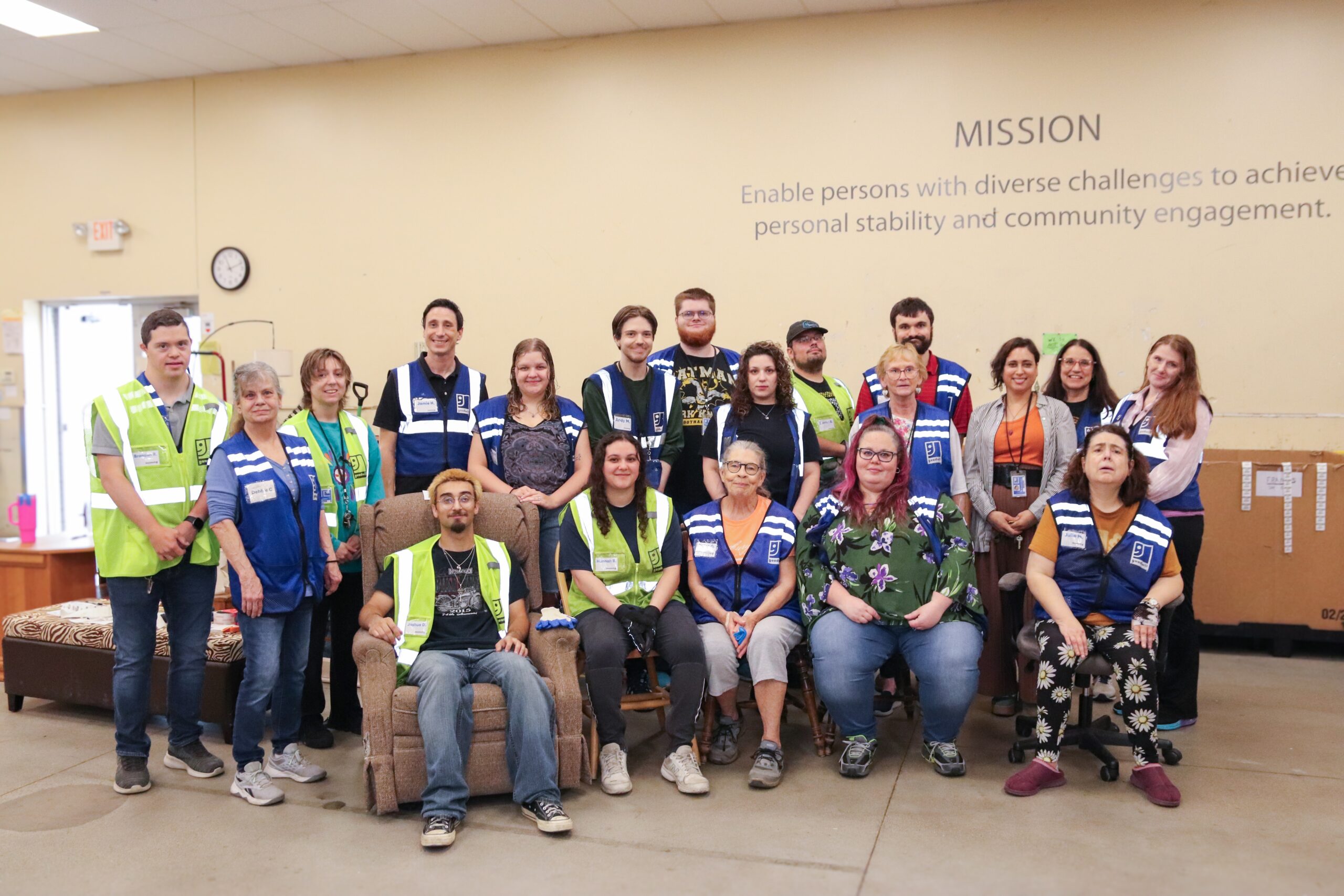News
NeuroFeedback helps clients with anxiety, depression, sleep, brain injury, more
March 7, 2023
Goodwill’s NeuroRehabilitation clinics have a new piece of technology that helps train people’s brains to be more flexible and efficient. NeuroFeedback helps treat anxiety, depression, insomnia, and more in a noninvasive way. It also can help healthcare staff diagnose autism, schizophrenia, brain injury, and more without relying solely on self-reported symptoms.
“It can be difficult for a patient with a brain injury to describe all of their symptoms, and to separate a concurrent diagnoses from their brain injury symptoms,” said Mackenna Murtagh, Clinical Director of Goodwill NeuroRehab Services. “For instance, a lack of focus might be a symptom of a concussion, but it could be an undiagnosed ADHD symptom. NeuroFeedback lets us see a clearer picture of what’s happening in someone’s brain so we can give them the therapies they need.”
How NeuroFeedback works
During NeuroFeedback treatments, the client wears a cap with electrodes all over it that reads brain waves. Dr. Murtagh can put “games” on a TV screen in front of the client to try to re-train the brain in certain ways. For instance in one portal, clients see an empty fish tank. As their brain produced fewer theta brain waves, more fish populate on the TV screen with delightful sounds. The work is all unconscious — a client can’t consciously control their brain waves — but the brain uses the feedback and learns how to get the Pavlovian reward (in this case of getting more fish and sounds).
“Your brain figures it out. Over time, we can make huge strides with a client, all without them having to put in effort, and without any type of surgery or invasive tactics,” Murtagh said. “We’re excited to bring this service to Maine because there is a need and this technology is not widely available.”
Goodwill staff began using NeuroFeedback technology at the end of February 2023. Some clients have begun reporting better sleep and mood within weeks.



